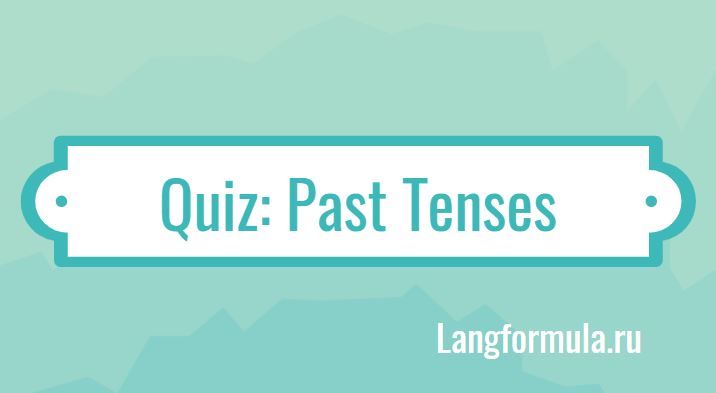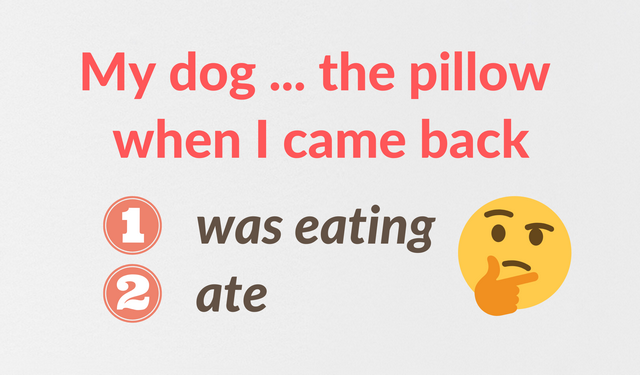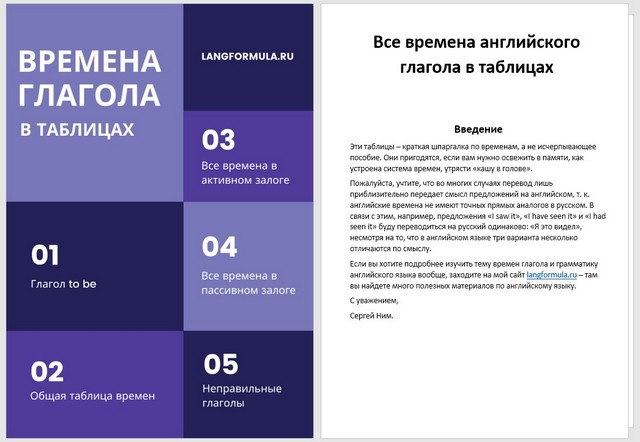Test. Past Tenses.
a. talked b. had talked
c. had been talking d. was talking
a. sat b. had sat
c. had been sitting d. were sitting
a. learnt b. had learnt
c. had been learning d. was learning
a. stayed b. had stayed
c. had been staying d. was staying
a. stayed b. had stayed
c. had been staying d. was staying
6 The musician (play) the piano for a whole hour when we came in.
a. played b. had played
c. had been playing d. was playing
a. walked b. had walked
c. had been walking d. were walking
. finished b. had hardly finished
c. had been finishing d. was finishing
a. answered b. had answered
c. had been answering d. was answering
a. planned b. had planned
c. had been planning d. was planning
Put the verbs into the correct form: the Past Perfect, Past Perfect Continuous, Past Simple, Past Continuous.
1. had been, was reached
2. had been feeling, had been
3. wondered, had left
4. was playing, hit
5. had been driving, broke
6. discovered, had left
7. was typing, asked
8. had been typing
9. was still raining, got
10. was cleaning, didn’t answer
11. was, used
12. had been washing
13. was, had never flown
14. never liked
15. was dancing, stopped
Упражнения на прошедшие времена в английском языке Past Simple, Past Continuous и Past Perfect в сравнении
Раскройте скобки, употребляя глаголы в Past Simple или Past Perfect.1. By two o’clock the teacher (to examine) all the students.2. On my way to school I (to remember) that I (to leave) my report at home.3. All my friends (to be) glad to hear that I (to pass) all the exams successfully.4. Poor boy (to open) his eyes, (to look) around and (to try) to re¬member what (to happen) to him.5. All the passengers (to see) at once that the old man (to travel) a lot in his life.6. By the time we (to come) to see him, he (to leave) home.7. During the holidays my friend (to visit) the village where he (to live) in his childhood.8. When they (to enter) the hall, the performance already (to begin).9. When I came home, my mother (to go) to the shops.10. He (to study) French before he (to enter) the university.
1. I (to think) he already (to go) home.2. I (not to see) him after we (to meet )at the concert.3. He (to leave) the house before I (to have ) time to ask him anything.4. After he (to spend) some days in Paris he (to feel) lonely and (to want) to return home.5. He (to speak) a language we never (to hear) before.6. When the rain (to stop), I (to look ) out of the window.7. The telegram (to come) some minutes after he (to leave).8. She (to think) that Tom and Lanny (to quarrel).9. The girl (to be) glad that she (to find) a seat near the win¬dow.10. He (to remember) that he (not to ring) her up in the morning.11. By the time the train (to reach) the city, he (to make) friends with many passengers.12. When my uncle (to leave), he (to hurry) to the station to book a ticket.
Сравните употребление Past Simple, Past Continuous и Past Perfect
Раскройте скобки, употребляя глаголы в Past Simple, Past Continuous и Past Perfect.1. By eight o’clock yesterday I (to finish) my work and at eight I (to play) the piano.2. By six o’clock father (to come) home and at six he (to have) dinner.3. By nine o’clock yesterday grandmother (to wash) the dishes and at nine she (to watch) TV.4. When I (to meet) Tom, he (to eat) an ice-cream which he (to buy) at the corner of the street.5. When father (to come) home, we (to cook) the mushrooms which we (to gather) in the wood.6. When I (to see) Ann, she (to look) at the flowers which she (to pick) in the field.7. When I (to come) home yesterday, I (to see) that my little brother (to break) my pen and (to play) with its pieces.8. When I (to open) the door of the classroom, I (to see) that the teacher already (to come) and a student (to write) a test.9. When I (to come) home my sister (to read) a book which she (to bring) from the library.10. When mother (to come) home, the children (to eat) the soup which she (to cook) in the morning.11. When I (to ring) up Mike, he still (to learn) the poem which he (to begin) learning at school.12. When I (to look) out of the window, the children (to play) with a ball which Pete (to bring) from home.
Underline the most suitable verb form in each sentence. The first one is done for you.
1 I suddenly remembered that I forgot I my keys.2 While Diana watched / was watching her favourite television programme, there was a power cut.3 Tom used to live / would live in the house at the end of the street.4 Who was driving /drove the car at the time of the accident?5 By the time Sheila got back, Chris went / had gone.6 David ate / had eaten Japanese food before, so he knew what to order.7 I did / was doing some shopping yesterday, when I saw that Dutch friend of yours.8 I used to like / was liking sweets much more than I do now.9 What exactly were you doing / did you do when I came into your office yesterday?10 Laura missed the party because no-one was telling / had told her about it.11 Tanya would / used to be a doctor.
3.Put each verb in brackets into a suitable past verb form. Only use the past perfect where this is absolutely necessary.
4. Decide whether the verb form in italics is suitable or unsuitable.
Цель данной работы:
проверить у учащихся умение правильно использовать времена группы Past в процессе их повторения и изучения .
Работа составлялась к учебнику В.Эванс, Дж. Дули «Английский язык» (« Английский в фокусе») 8 класс, но возможно использование данного теста и с другим учебным пособием.
Тест можно предложить учащимся для выполнения целиком, а можно разбить его
на части и проверять знания на разных уроках в виде «пятиминуток».
Past Perfect or Past Simple
1 They _____________________ (already/eat) all the bread when the waiter ________________ (bring) the meal.
2 He _________________________(have) the car for twelve years when he ________________________(sell) it.
3 She ____________________________________________________________ (never/phone) the dentist before.
4 The baby ____________________________________________________________(fall ) asleep by 11 o’clock.
5 I ________________________ (go) to bed as soon as I __________________ (finish) all the grammar exercise.
6 We ________________________( prepare) the food before the guests ___________________________(arrive).
7 Mum __________________________ (already make) breakfast when we ________________________ (get up).
8 Kate ____________________________ (start) studying after John _____________________________ (leave).
9 She ____________________________ (realise) that she _______________________ (forget) her book at home.
10 Lisa’s mother ___________________________________(buy) her a kitten yesterday because she ______________________________(sing) well in the concert the night before.
Past Perfect or Past Perfect Continuous
11 The thief ____________________________________________(steal) the car for years before he was caught.
12 The phone ____________________________________________(ring) for ten minutes before he answered it.
13 The decorator ___________________________________________( paint) all the walls before Dad got home.
14 I ___________________________________________(do) the housework all day, so I decided to take a break.
15 They _____________________________________________________(eat) all the pizza before I got there.
Past Simple, Past Continuous, Past Perfect or Past Perfect Continuous
16 He was tired. He __________________________________________________ ________(drive) since 8 a.m.
17 She _________________________________________________(fry) the fish when the frying pan caught fire.
18 Tom ____________________________________________________(retur n) from the cinema at five o’clock.
19 She __________________________(type) a letter while she ________________________( talk) on the phone.
20 Mother __________________________(see) that Nick ___________________________(not wash) his hands.

Пройдите тесты на прошедшее время в английском языке, чтобы проверить свои знания. Я подготовил тест для начинающих с вопросами на времена Past в активном залоге и более трудный тест на времена Past в активном и пассивном залоге. Если у вас есть вопросы, пишите в комментариях!
- Тест на настоящее время для начинающих
- Тест на прошедшее время — активный и пассивный залог
- Тест на времена в английском языке
- Упражнение 1. Глагол в Present Simple
- Упражнение 2. Неправильные глаголы
- Упражнение 3. Времена Continuous
- Упражнение 4. Present Simple или Present Continuous?
- Упражнение 5. Времена Simple или Continuous?
- Упражнение 6. Past Simple или Present Perfect?
- Упражнение 7. Времена Past Perfect и Future Perfect
- Упражнение 8. Времена в английском языке
Тест на настоящее время для начинающих
В этот тест на настоящее время в английском языке вошли простые вопросы на времена Past Simple, Past Continuous, Past Perfect в активном и пассивном залоге.
Выберите подходящий вариант перевода.
Показать ответы с переводом
- Вчера я купил новый телевизор. — Yesterday I bought a new TV.
- Я родился в 1997 году. — I was born in 1997.
- Я все еще спал, когда ты мне позвонил. — I was still sleeping when you gave me a call.
- Он продал машину за день до того, как она сломалась. — He had sold his car a day before it broke down
- Мне не понравился Лондон, когда я посетил его в первый раз. — I didn’t like London when I first visited it.
Тест на прошедшее время — активный и пассивный залог
В этот тест на прошедшее время в английском языке вошли более трудные вопросы на прошедшее время в активном и пассивном залоге. Если у вас есть вопросы, почему ответ именно такой, пишите в комментариях.
- Мы ошиблись. — We made mistakes.
- Мост построили раньше, чем здесь основали город. — The bridge had been built before the city was founded here.
- За доктором послали. — The doctor was sent for.
- Я искал свой телефон, когда он зазвонил. — I was looking for my phone when it rang.
- За собакой хорошо ухаживали. — The dog was taken care of well.
- У министра брали интервью, когда ему пришлось прервать пресс-конференцию. — The minister was being interviewed when he had to interrupt the press conference.

Здравствуйте! Меня зовут Сергей Ним, я автор этого сайта, а также книг, курсов, видеоуроков по английскому языку.
У меня также есть канал на где я регулярно публикую свои видео.

https://youtube.com/watch?v=wRZPYmXcUCc%3Ffeature%3Doembed
После теста вы найдете все вопросы с ответами и переводом.
Тест на времена в английском языке
Задание во всех вопросах одно и то же: выберите подходящий вариант перевода.
- Мой кот не ест огурцы — My cat doesn’t eat cucumbers
- Вы вообще слушаете? — Are you even listening?
- Я никогда не был в России — I have never been to Russia
- Сейчас я вас понимаю — Now I understand you
- Сколько вы уже здесь (находитесь)? — How long have you been here?
- В понедельник я отремонтировал дверь и окно — I fixed the door and window on Monday
- Полиция наблюдает за ним два года — He’s been watched by the police for two years
- Моя собака ела мою подушку, когда я вернулся домой — My dog was eating my pillow when I came back home
- Вчера я нашел чемодан с деньгами, теперь не знаю, что с ним делать — Yesterday I found a case full of money, now I don’t know what to do with it
- Я не встречу тебя в аэропорту, я буду работать, когда ты прибудешь — I won’t meet you at the airport, I’ll be working when you arrive
- В прошлом году я нашел потайную пещеру, но клада там уже давно не было к тому времени — Last year, I found the secret cave but the treasure had been long gone by that time
- Он никогда не сдавался, это был первый раз — He had never given up, that was the first time
- Он не глупый, он просто ведет себя глупо — He’s not stupid, he’s just being stupid
Если у вас есть вопросы или замечания, пожалуйста, пишите в комментариях!

Времена в английском языке — важная часть грамматики и камень преткновения начинающих. Чтобы не путаться во временах, просто изучить теорию не достаточно, нужно закрепить знания с помощью упражнений. Эти упражнения на времена в английском языке помогут вам лучше разобраться в одной из главных тем английской грамматики.
Если вы хотите освежить в памяти тему времен в английском языке, прежде чем проходить упражнения, посмотрите это видео, где я разбираю времена в активном залоге.
https://youtube.com/watch?v=wRZPYmXcUCc%3Ffeature%3Doembed
Упражнение 1. Глагол в Present Simple
В этом упражнении вам нужно поставить глагол в одну из форм Present Simple. Напомню, таких форм всего две: глагол в начальной форме и глагол с окончанием -s.
- He has some sugar. — У него есть немного сахара.
- Jacob and Tina have a lot in common. — У Джейкоба и Тины много общего.
- I do not keep expired pills. — Я не храню просроченные таблетки.
- He runs the company with his brother. — Он управляет компанией со своим братом.
- She does not like my job. — Ей не нравится моя работа.
- Do you know how it works? — Вы знаете, как это работает?
- Cats never miss a chance to sleep. — Кошки никогда не упускают возможности поспать.

Этот справочник включает таблицы глагола to be, общие таблицы времен, таблицы по каждому времени в отдельности, включая пассивный залог, а также подборку неправильных глаголов
Упражнение 2. Неправильные глаголы
Неправильные глаголы отличаются тем, что образуют 2-ую и 3-ю формы нестандартным способом. Раскройте скобки и поставьте глагол во 2-ую или 3-ю форму. Какая именно форма нужна в каком предложении — понятно из контекста. Обращайте внимание на подсказки в виде глагола to have. Напомню: третья форма глагола используется (в том числе) в Present Perfect, например: «have seen», «has not forgiven» и т. д.
- John opened his eyes and breathed deeply. — Джон открыл глаза и глубоко вдохнул.
- I have never seen an elephant. — Я никогда не видел слона.
- She brought me some milk. — Она принесла мне молока.
- The Kingdom has fallen. — Королевство пало.
- We understood him but have not forgiven. — Мы поняли его, но не простили.
- Who dug the hole here? — Кто здесь копал яму?
- There is a broken chair here. Who broke it? — Здесь сломанный стул. Кто его сломал?
Упражнение 3. Времена Continuous
В этом задании вам нужно раскрыть скобки и поставить глаголы в нужную видовременую форму: Present Continuous, Past Continuous или Future Continuous. Обращайте внимание на перевод, чтобы понять, какое выбрать время.
- The mouse is sneaking. — Мышь крадется.
- I am waiting patiently. — Я терпеливо жду.
- Lucy is playing guitar with Jake. — Люси играет на гитаре с Джейком.
- We were waiting for Sandy but she was not coming. — Мы ждали Сэнди, но она не шла.
- What were you trying to do? — Что ты пытался сделать?
- I will be working after lunch, let’s meet after work. — Я буду работать после обеда, давайте встретимся после работы.
- You are not going anywhere! — Ты никуда не идешь!
Упражнение 4. Present Simple или Present Continuous?
В английском языке существуют отдельные формы для неопределенного (простого) времени и длительного. Раскройте скобки и поставьте глагол в нужную форму — Present Simple или Present Continuous.
- My uncle walks two miles every day and feels very well. — Мой дядя ходит пешком по две мили в день и чувствует себя очень хорошо.
- We really need another vacation. — Нам действительно нужен еще один отпуск.
- Sorry, I can’t talk now, I am running to see the doctor at the moment. — Извини, я не могу говорить сейчас, я прямо сейчас бегу на прием к врачу.
- My dad always says that I should find another job. — Мой папа всегда говорит, что мне лучше найти другую работу.
- Take an umbrella, it is going to rain. — Возьми зонт, скоро будет дождь.
- I added some pepper to the soup, now it smells better. — Я добавил немного перца в суп, теперь он пахнет лучше.
Упражнение 5. Времена Simple или Continuous?
Это упражнение на все времена Simple и Continous. Раскройте скобки и поставьте глагол в одну из форм:
1. You will be safe now. — Теперь вы будете в безопасности.
2. Yesterday I found a coin in the garden. It looked very old. — Вчера я нашел монету в саду. Она выглядела очень старой.
3. Jake was watching TV when someone knocked on the door. — Джейк смотрел телевизор, когда кто-то постучал в дверь.
4. Life is like a box of chocolates. You never know what you are going to get. — Жизнь — как коробка шоколадных конфет. Никогда не знаешь, что получишь.
5. We were just talking about you! — Мы только что о тебе говорили!
6. I can’t pick you up from the school today, because I will be working in the evening. Mom will pick you up. — Я не могу заехать за тобой в школу сегодня, потому что вечером буду на работе. Мама за тобой заедет.
Упражнение 6. Past Simple или Present Perfect?
Present Pefrect и Past Simple часто вызывают затруднения, поскольку во многих случаях переводятся на русский язык одинаково. Проверьте, знаете ли вы, в каких случаях используется Past Simple, а в каких Present Perfect.
Выберите правильный вариант перевода.
Упражнение 7. Времена Past Perfect и Future Perfect
Past Perfect чаще встречается в художественной литературе, чем в разговорной речи. Future Perfect используется редко и в устной речи, и в письменной. Знаете ли вы, в каких случаях используются эти времена?
Упражнение 8. Времена в английском языке
В этом задании вам нужно раскрыть скобки и поставить глагол в видовременную форму, подходящую по смыслу. Обращайте внимание на перевод, чтобы понять, какое время глагола лучше подходит.
- Jane loves cakes and hates broccoli. — Джейн любит торты и ненавидит брокколи.
- I was listening to the lecturer carefully but understood nothing. — Я внимательно слушал лектора, но ничего не понял.
- Oh, I’m glad to see you! I have been waiting for you all day! — О, я рад тебя видеть! Я ждал тебя весь день.
- When the rescue team found the lost tourists, they had been living with no food for two days. — Когда спасатели нашли пропавших туристов, те уже два дня жили без еды.
- I had warned you many times but you didn’t listen. — Я предупреждал тебя много раз, но ты не слушал.
- By the end of the next year, we will have produced two million tons of soap. — К концу следующего года мы произведем два миллиона тонн мыла.
- No, tomorrow morning I will be (am) busy. I will be playing (am playing) football with my kids. — Нет, завтра утром я буду занят. Я буду играть в футбол с детьми.




